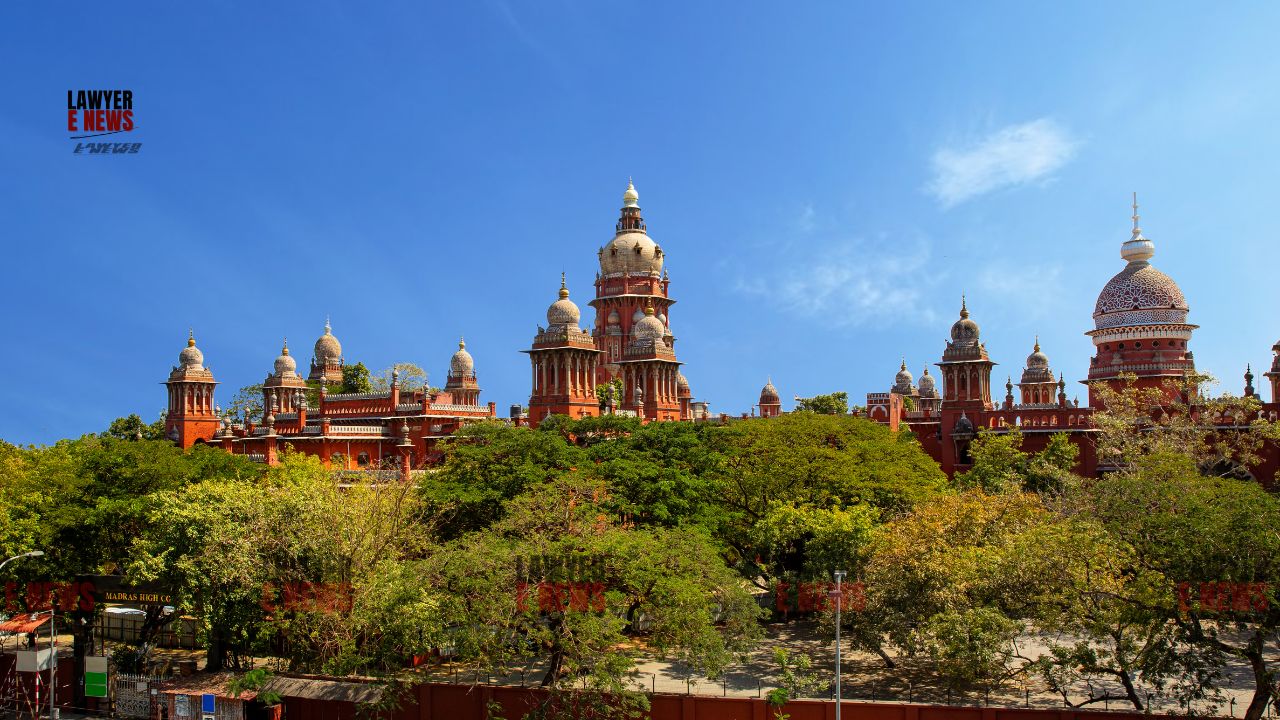-
by Admin
15 February 2026 5:35 AM



"Without a declaration of title, a suit for permanent injunction cannot succeed when ownership is disputed," the Madras High Court ruled. Madras High Court dismissed a second appeal filed by a temple challenging the concurrent decisions of the Trial and First Appellate Courts. The suit for a permanent injunction against alleged trespass was rejected as the plaintiff failed to establish ownership of the disputed property (Town Survey No. 1001), while the defendant successfully proved his title through registered sale deeds dating back to 1955.
The appellant, a temple represented by its Executive Officer, sought a permanent injunction to prevent the respondent from constructing on the disputed property, claiming it was temple land leased to prior tenants. The respondent, however, asserted ownership based on a clear chain of title dating back to 1955, supported by registered deeds.
The Trial Court and the First Appellate Court dismissed the suit, holding that the plaintiff failed to prove ownership or possession and did not seek a declaration of title, as required in such disputes.
The Court ruled that the plaintiff's reliance on revenue records, such as the Town Survey Register and Rent Demand Register, was insufficient to prove ownership. Justice R. Sakthivel observed:
"Revenue records serve administrative purposes and cannot override registered sale deeds that establish title. The plaintiff failed to provide corroborative evidence, such as rent receipts or title documents, to substantiate its claim."
The Court upheld the lower courts' finding that the defendant successfully traced his title through registered deeds dating back to 1955. Justice Sakthivel stated:
"The defendant’s unbroken chain of title documents leaves no room to label him a trespasser in the absence of any evidence from the plaintiff proving superior ownership."
Referring to Anathula Sudhakar v. P. Buchi Reddy, the Court emphasized that:
"In cases where title is disputed, a suit for injunction alone is not maintainable. The plaintiff must seek declaratory relief along with injunction. The temple’s failure to amend its plaint to include a declaration of title was fatal to its case."
The Court found no substantial questions of law arising in the appeal, stating:
"Both the Trial and First Appellate Courts correctly applied the law and evaluated the evidence. There is no irregularity or misapplication of legal principles warranting interference."
The Madras High Court dismissed the second appeal with costs, concluding:
"The plaintiff temple failed to establish ownership or possession of Town Survey No. 1001. In contrast, the defendant’s title and possession were clearly established. The suit for injunction simpliciter is not maintainable without declaratory relief when ownership is disputed."
This ruling reaffirms the legal principle that revenue records alone cannot establish ownership and underscores the necessity of seeking declaratory relief in disputes involving contested title.
Date of Judgment: November 22, 2024
